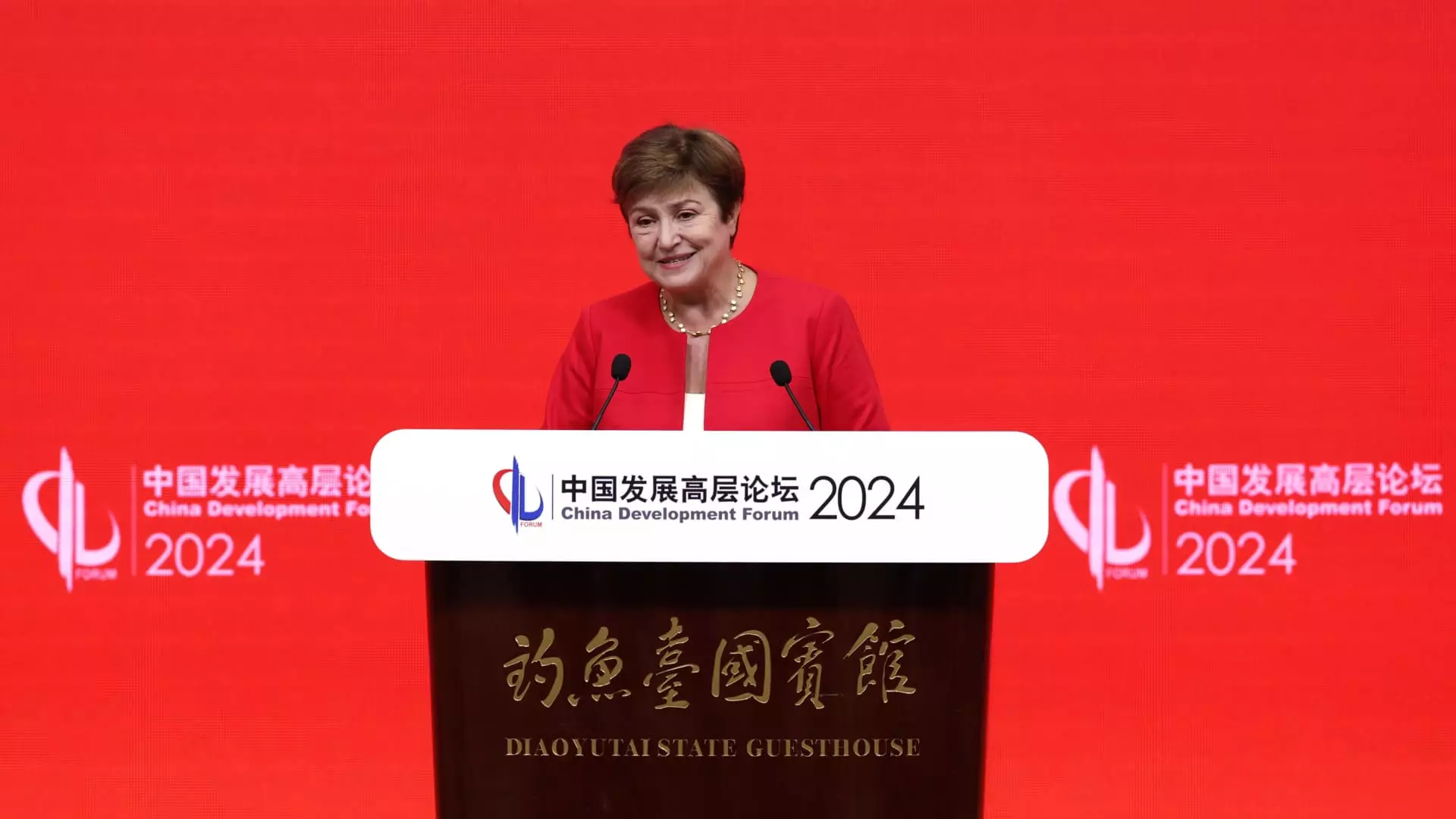China is currently at a critical juncture, with the International Monetary Fund emphasizing the need for the country to choose between sticking to old economic policies or embracing reforms to boost growth. The IMF’s Managing Director, Kristalina Georgieva, believes that China has the potential to significantly accelerate its economic growth by implementing a comprehensive package of pro-market reforms. Georgieva’s statement at the China Development Forum in Beijing underscores the importance of updating policies for a new era of high-quality growth.
Despite a post-Covid rebound that saw growth exceed 5% in 2023, China is grappling with issues such as low productivity growth and an aging population. However, Georgieva remains optimistic about China’s role as a key contributor to global economic growth in the medium term. She envisions a scenario where proactive reforms could lead to a 20% expansion of the real economy over the next 15 years, equivalent to adding US$3.5 trillion to the Chinese economy. This highlights the tremendous potential for growth if the right policy decisions are made.
At the China Development Forum, Chinese Premier Li Qiang reiterated the government’s commitment to promoting “high-quality development” and intensifying macro-policy adjustments. The focus is on expanding domestic demand and fostering a higher level of openness to address existing challenges. Li Qiang’s pledge reflects China’s determination to navigate through economic hurdles and achieve sustainable growth despite external pressures and internal obstacles.
Chinese officials have also pledged to provide further protection to foreign-funded firms amid declining overseas investment flows. These measures are aimed at instilling confidence among foreign investors and businesses as China strives to reach its growth target of about 5% this year. However, challenges persist, including overcapacity, price pressures, and a looming property and debt crisis. Structural reforms are crucial for China to drive growth, boost domestic consumption, and enhance investor confidence.
Georgieva highlighted some of the most pressing near-term challenges facing China, such as transitioning the property sector to a more sustainable footing and reducing local government debt risks. To address these issues effectively, decisive steps must be taken to resolve housing projects left incomplete by bankrupt developers and mitigate risks associated with local government debt. By doing so, China can expedite the resolution of current property sector problems and uplift consumer and investor confidence.
The decision that China makes today will shape its economic trajectory for the years to come. Embracing reforms and proactively addressing challenges will be crucial for sustaining growth and enhancing resilience in the face of global economic uncertainties. The potential for China to emerge as a powerhouse of high-quality growth is within reach, provided that the necessary steps are taken to navigate the complexities of the modern economic landscape.


Leave a Reply